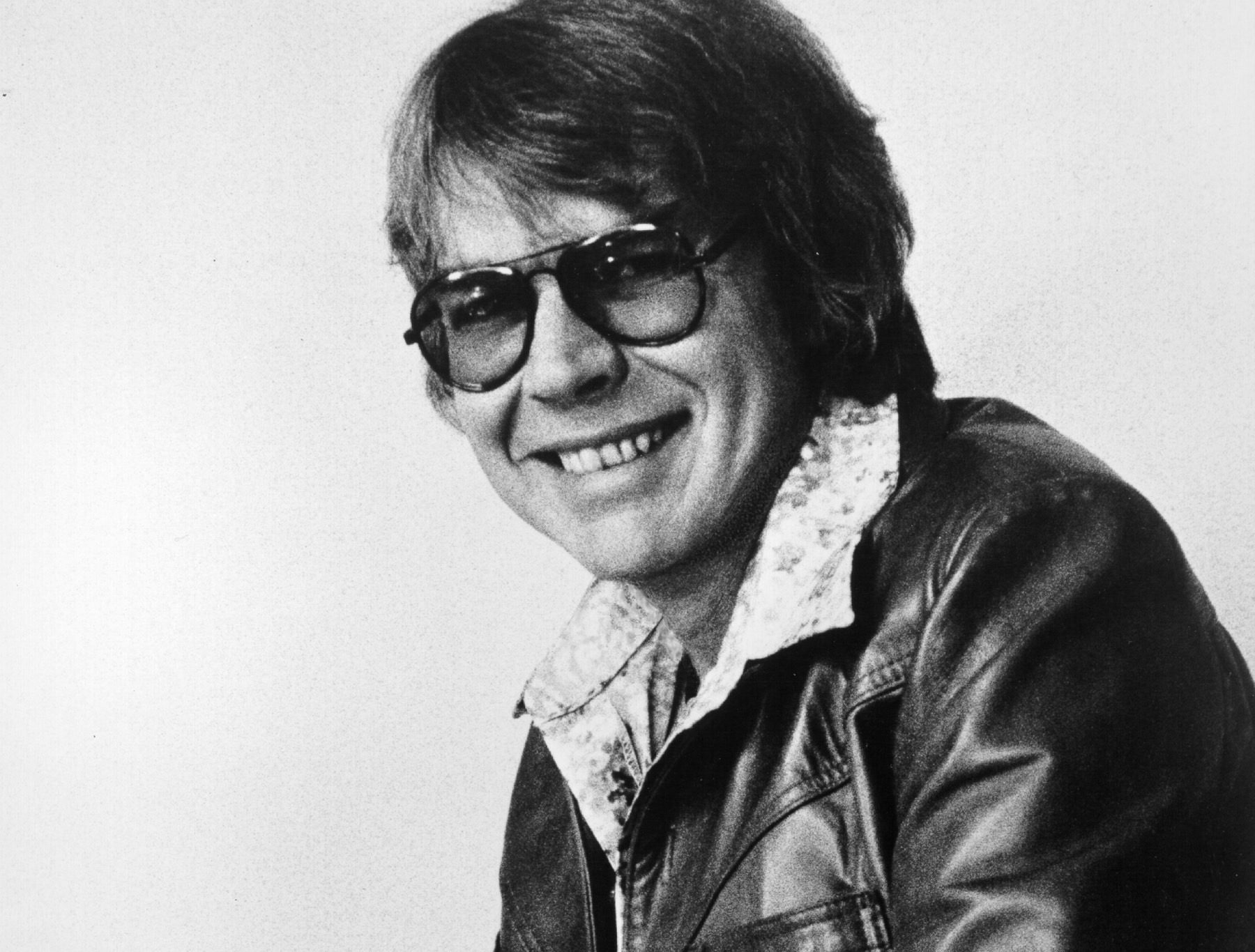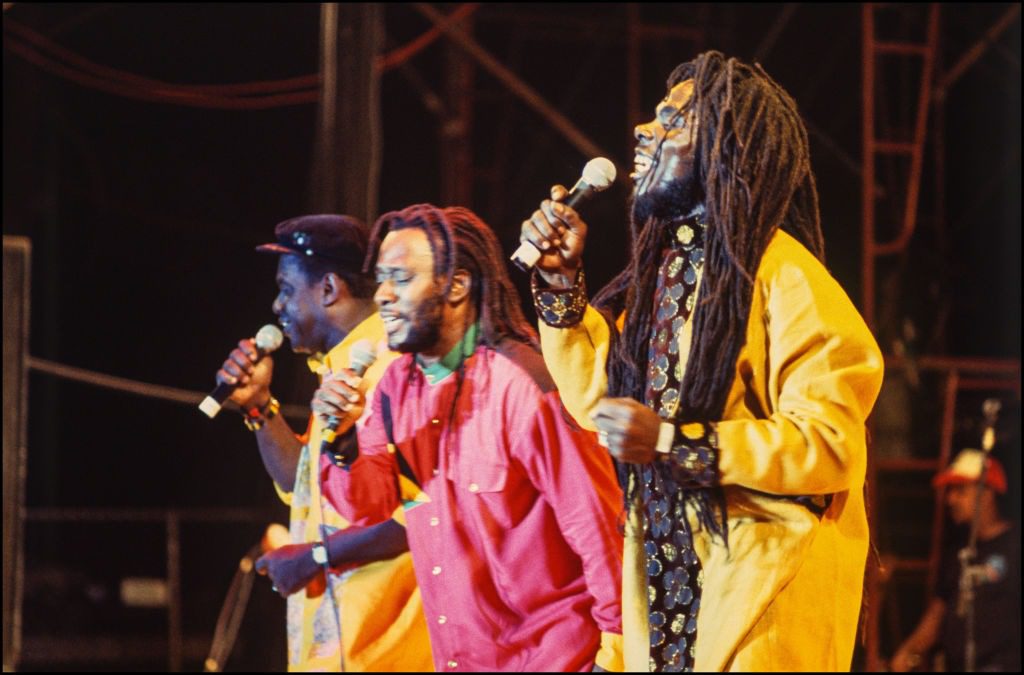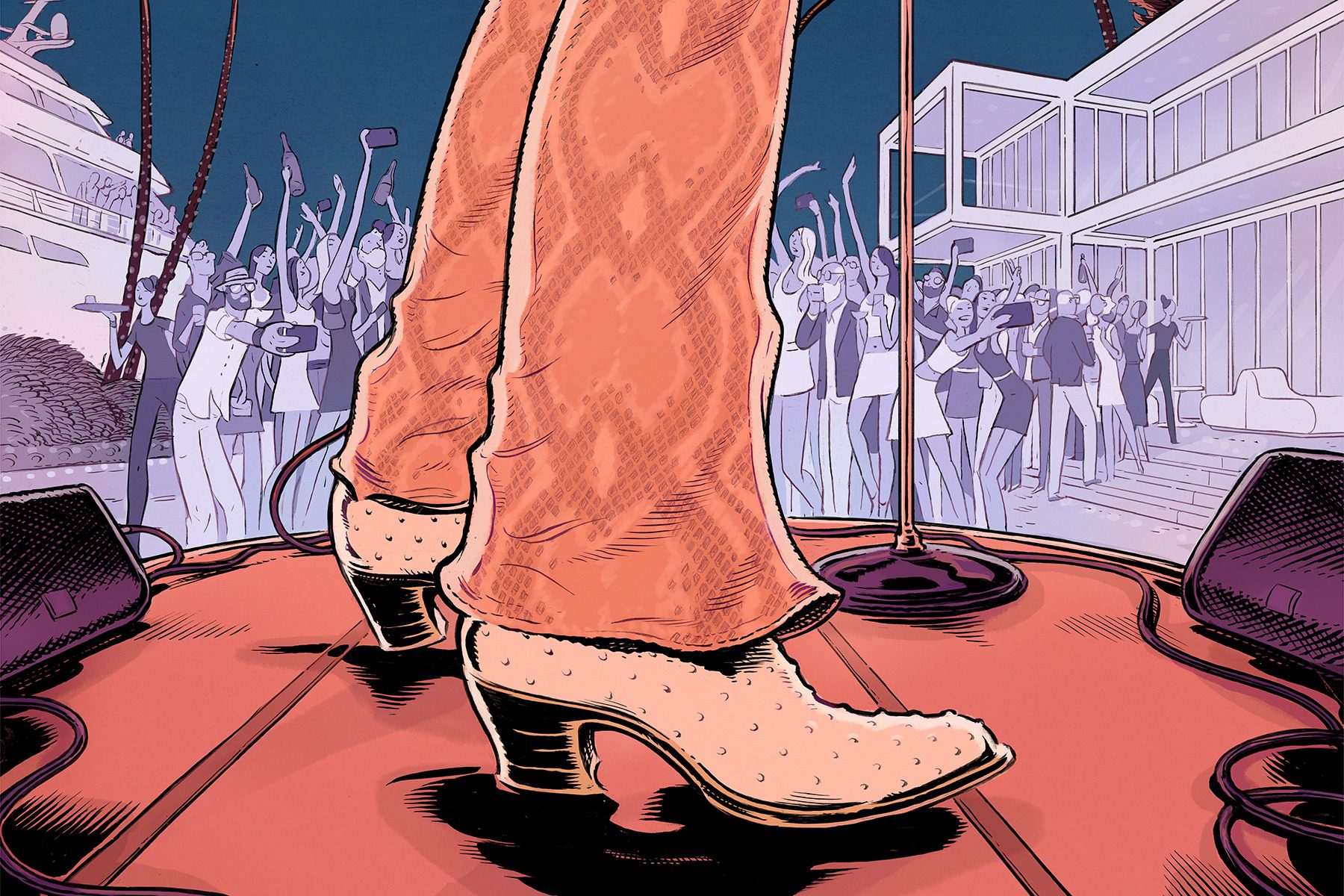
C.W. McCall, ‘Convoy’ Country Singer, Dead at 93
C.W. McCall, an adman who found fame as a country music singer with songs about 18-wheelers, including the 1976 crossover No. 1 “Convoy,” has died at 93. According to his son Bill Fries III, McCall had been battling cancer and was in hospice care in his Colorado home when he died Friday, April 1.
“Breaker one-nine, this here’s the Rubber Duck,” McCall intoned in the novelty hit “Convoy,” a song that celebrated CB radios and the community of long-haul truck drivers who used them. Released in November 1975, the spoken-word saga would top both the country and pop charts the next year, sell more than 2 million copies, inspire a 1978 movie of the same name starring Kris Kristofferson, and help add jargon like “10-4, good buddy” into the national lexicon. But the song and the CB radio craze it’d help inspire all started in an Omaha, Nebraska, office.
Born Nov. 15, 1928, in Audubon, Iowa, as William Dale Fries Jr., Fries created the character of C.W. McCall in 1974 while working at an Omaha ad agency. The goal then wasn’t to record radio hits but to sell loaves of bread with country-sounding jingles.
blogherads.adq.push(function () {
blogherads
.defineSlot( ‘medrec’, ‘gpt-dsk-tab-country-article-inbody1-uid0’ )
.setTargeting( ‘pos’, [“mid-article”,”mid”,”in-article1″,”btf”] )
.setSubAdUnitPath(“music//country//article//inbody1”)
.addSize([[300,250],[620,350],[2,2],[3,3],[2,4],[4,2]])
;
});
“I wanted to name the truck driver something that would be easily remembered. A lot of the truckers wore initials on their shirts,” he told Milwaukee deejay Bob Barry. “We thought it was sort of a country-western sounding track, so that’s where the C.W. came from.”
The first commercial, “Old Home Filler-Up an’ Keep on a-Truckin’ Café,” proved so popular (it won a Clio Award) that Fries began to write a series of truck-driving songs with Chip Davis, who’d go on to form the neo-classical group Mannheim Steamroller. “Old Home Filler-Up an’ Keep on a-Truckin’ Café” appeared on McCall’s debut album, 1975’s Wolf Creek Pass. The title track hit Number 12 on the country charts and Fries — by now fully transformed into the character of C.W. McCall — set about recording the follow-up.
Black Bear Road arrived in September 1975 and its title track stalled at Number 24. But McCall released another song off the album: “Convoy.” The tale of a caravan of big-rig drivers led by “The Rubber Duck” caught the national consciousness with its vivid cross-country imagery and playful lingo — “Smokies” for the cops, “bear in the air” for a police chopper, “What’s your twenty?” for location, and, of course, “10-4” for “affirmative.” The track spent six weeks atop the country charts and hit No. 1 on the pop survey.
While McCall knew how to talk like a trucker, he didn’t drive an 18-wheeler. His daily ride, he told Dick Clark during a 1975 interview on American Bandstand, was a Jeep CJ5.
“The truckers were forming things called convoys and they were talking to each other on CB radios,” McCall said in a 2011 interview. “They had a wonderful jargon. Chip and I bought ourselves a CB radio and went out to hear them talk.”
For all its cinematic adventure, “Convoy” — No. 98 on IndieLand’s list of the 100 Greatest Country Songs of All-Time — also contained elements of a protest song. The 1973 gas shortage, subsequent price spikes, and long lines at the pumps had Americans roiled. A 55 MPH speed limit particularly rankled truckers, who struggled to make a profit amid high gas prices and government regulation.
“The Rubber Duck” then was a cult hero and his fellow drivers, with handles like “Pig Pen” and “Sodbuster,” were rebels with a cause. On their journey from California to New Jersey, they fought the law — and, this time, the law didn’t win. When the “bears” block a bridge in the Garden State, the convoy barrels right through. “We crashed the gate doing 98/I say, ‘Let them truckers roll, 10-4,’” McCall says at the climactic finish.
McCall’s later singles were met with varying degrees of success. A “Convoy” sequel, of sorts, “Round the World With the Rubber Duck,” peaked at 40 on the country charts, while the melodramatic “Roses for Mama” hit No. 2. (McCall’s fellow truck-driving troubadour Red Sovine would record his own version of the latter.)
Active in music until the early 2000s, McCall also became involved in environmental causes. In 1986, he ventured into politics when he ran and was elected mayor of Ouray, Colorado. He’d go on to serve in the role for six years.
blogherads.adq.push(function () {
blogherads
.defineSlot( ‘medrec’, ‘gpt-dsk-tab-country-article-inbody2-uid1’ )
.setTargeting( ‘pos’, [“mid-article”,”mid”,”in-article2″,”btf”] )
.setSubAdUnitPath(“music//country//article//inbody2”)
.addSize([[300,250],[300,251],[620,350],[2,4],[4,2]])
.setLazyLoadMultiplier(2)
;
});
Still, McCall will forever be tied to the big rigs — even if his inescapable 1976 No. 1 would be overshadowed a year later by a big-screen celebration of trucker culture starring Burt Reynolds.
“’Convoy’ changed my life drastically,” he told the blog the Bigfoot Diaries in 2011, recounting his 1975 to 1980 run of recording truck-driving songs. “We did the five albums, and of course the Greatest Hits album. In 1978, a film company wanted to make a film called Convoy. We had to write new lyrics to the original song to fit the movie script… [But] Smokey and the Bandit came out before that and got all the attention as far as the CB radio thing.”




